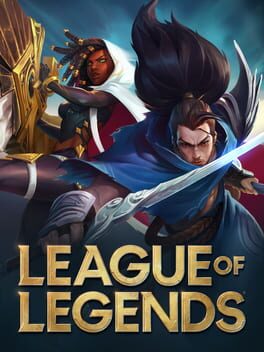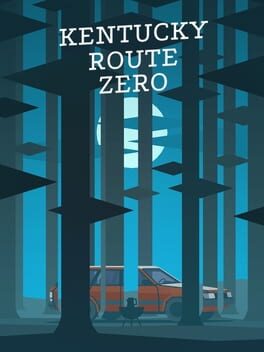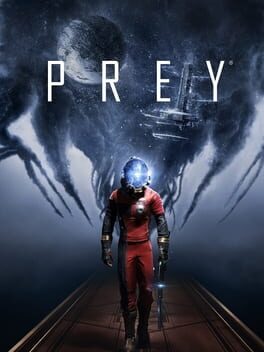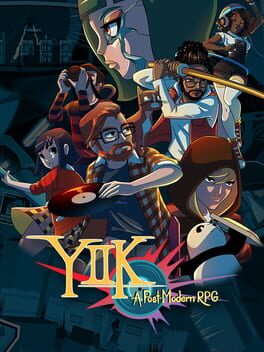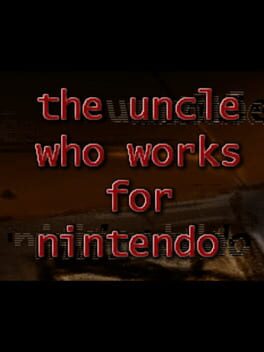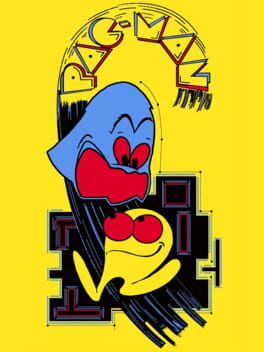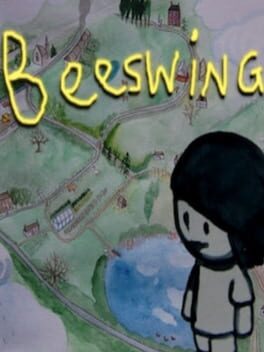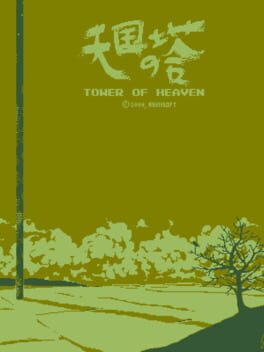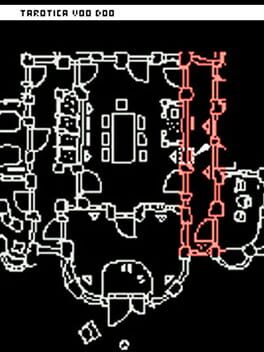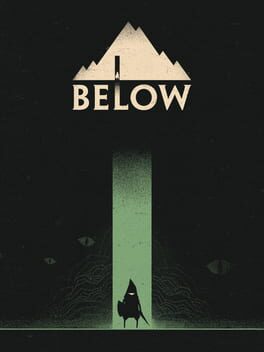MFossy
232 Reviews liked by MFossy
BioShock Infinite
2013
i love when a captive young girl is raised as essentially a feral plaything confined to a birdcage by psychotic racists her entire life but after being freed is a quippy well-adjusted girl-next-door hottie and just sassy enough disney princess who sings zooey deschanel covers of abolition spirituals to smiling black children the game doesnt give a shit about
League of Legends
2009
Killer7
2005
Kentucky Route Zero
2013
I often struggle with abstract stories and ideas. A childhood of Montana education systems and Nostalgia Critic videos have sort of poisoned my mind to largely view text as literally as possible. At the same time, I really treasure the unexplained in stories. Its hard as a writer to leave something up to interpretation, but it adds a layer of discussion and analysis to a work that I think so many stories tend to lack.
The idea of Games As Art is a hard topic because it slams right into that question of what exactly makes something art. I'm not looking to point fingers at any group of people online, so I'll just fill in David Cage as my strawman. Your David Cage types think the Games As Art question is all about creating something that everyone loves and adores without thinking too much deeper than that. I generally tend to imagine art needs to serve a purpose. An argument, an idea. But that's not fair either, forcing a requirement that a story shouldn't be beholden to. Maybe I don't know how to define art. Maybe I'm not supposed to.
I don't know how to define Kentucky Route Zero either. Its an ambitious story that somehow feels low-scale despite the full reach of its ideas. So much of the story leaves itself to your own imagination. Building up characters and backstories to your own leisure. You aren't controlling everything per se, but you are shaping things. Interpreting them. Its not a game where choices matter or change things. You can't stop the direction of the story. You can't keep every character safe. But... your choices still matter. It matters in the sense that you made those choices. They matter to you.
Tl:dr
The critically acclaimed game is good and made me cry.
The idea of Games As Art is a hard topic because it slams right into that question of what exactly makes something art. I'm not looking to point fingers at any group of people online, so I'll just fill in David Cage as my strawman. Your David Cage types think the Games As Art question is all about creating something that everyone loves and adores without thinking too much deeper than that. I generally tend to imagine art needs to serve a purpose. An argument, an idea. But that's not fair either, forcing a requirement that a story shouldn't be beholden to. Maybe I don't know how to define art. Maybe I'm not supposed to.
I don't know how to define Kentucky Route Zero either. Its an ambitious story that somehow feels low-scale despite the full reach of its ideas. So much of the story leaves itself to your own imagination. Building up characters and backstories to your own leisure. You aren't controlling everything per se, but you are shaping things. Interpreting them. Its not a game where choices matter or change things. You can't stop the direction of the story. You can't keep every character safe. But... your choices still matter. It matters in the sense that you made those choices. They matter to you.
Tl:dr
The critically acclaimed game is good and made me cry.
Prey
2017
Disco Elysium
2019
"You meet a new person, you go with him," Kid mused, "and suddenly you get a whole new city." He'd offered it as a small and oblique compliment.
Pepper only glanced at him, curiously.
"You go down new streets, you see houses you never saw before, pass places you didn't know were there. Everything changes."
"This way." Pepper ducked between buildings not two feet apart.
They sidled between the flaking boards. The ground was a-glitter from the broken windows.
Pepper said, "Sometimes it changes even if you go the same way."
- Samuel R. Delany, Dhalgren
Pepper only glanced at him, curiously.
"You go down new streets, you see houses you never saw before, pass places you didn't know were there. Everything changes."
"This way." Pepper ducked between buildings not two feet apart.
They sidled between the flaking boards. The ground was a-glitter from the broken windows.
Pepper said, "Sometimes it changes even if you go the same way."
- Samuel R. Delany, Dhalgren
The worst (best??) kind of disappointing art: the kind that you could tell was made by real people. The kind with the sort of passion and drive that can only be provided by someone who is thoroughly convinced that they have something to say that you don't already know. Its story is convoluted nonsense, its characters are bland and uninteresting, its combat is needlessly frustrating. It never really commits to any one idea, opting to implement many (and fail at executing all of them). But what really breaks this game for me is its self-consciousness. Anytime its weaknesses become too apparent, the writers simply remark on the fact that they are weaknesses. Apparently, you can get away with almost any bad writing as long as you let the player know that you know it's bad. It's a game that hopes to directly address the player and their flaws, yet all of its droning speeches about the meaning of existence find relevance only among the developers themselves. Playing this game is like watching the developers try to extract some kind of meaning out of the mistakes that they've made, or the mistakes that they think their "generation" has made, or whatever. But it's so dumb. Just... so so dumb. Big dumb game.
Play this game if you want to watch the world's longest, most excruciating train wreck. I couldn't tell you if it was worth it, but this is easily one of the most memorable bad games I've ever played. Will certainly be thinking about this game for a long time, even if it's not for the reasons the developers might hope. I guess that makes it a success.
edit: after over a year of thinking about this game, I'm convinced that I love it now and I cannot tell whether or not that love is ironic anymore. Either way, this review is outdated. Amazing game, masterpiece game. I.V hype is real.
Play this game if you want to watch the world's longest, most excruciating train wreck. I couldn't tell you if it was worth it, but this is easily one of the most memorable bad games I've ever played. Will certainly be thinking about this game for a long time, even if it's not for the reasons the developers might hope. I guess that makes it a success.
edit: after over a year of thinking about this game, I'm convinced that I love it now and I cannot tell whether or not that love is ironic anymore. Either way, this review is outdated. Amazing game, masterpiece game. I.V hype is real.
a horror story about playground lies and where they come from and why children think they need them.
edit several days later: I dunno, like I gave kind of a quick one-sentence pitch but there's really something... magical about this game. It guts you in a way that's hard to describe. It has this sense of unreality, through the viewpoint of children trying to understand and succeed through unfair rules. I'm still ruminating on it basically constantly. It cuts deep.
edit several days later: I dunno, like I gave kind of a quick one-sentence pitch but there's really something... magical about this game. It guts you in a way that's hard to describe. It has this sense of unreality, through the viewpoint of children trying to understand and succeed through unfair rules. I'm still ruminating on it basically constantly. It cuts deep.
Pac-Man
1980
Beeswing
2014
"A good tree has victims".
Stare close enough at the screen and you start to see the human hands appreciatively building every one of Beeswing's vignettes. I was thoroughly not expecting a game to understand, to so deftly and honestly articulate grief, nostalgia and mending. Beeswing is just honest, It’s not trying to impress anyone or manipulate them into feeling something, it simply wishes to exist - just as its inhabitants live quietly near and far from their loved ones, opening up to anyone who'll listen. Beeswing isn’t sad, but it isn’t happy either. It recounts the lives of (I assume) people the developer knew growing up with a plain biographical melancholy that is difficult to properly explain. I’m so used to media recounting horrible events, making me depressed for the sake of a narrative that’s supposed to mean something. But Beeswing never tried to bring me down, in fact it’s so clean in its indifference to how the player feels that it would seem cold if not for how tangible and raw the things it says and the way it shows you them are. A recurring motif in this game in itself is this kind of honesty, not necessarily to "make the most" of our limited time on this earth, but to live true - to yourselves and others, as it's the greatest way to reciprocate love.
Stare close enough at the screen and you start to see the human hands appreciatively building every one of Beeswing's vignettes. I was thoroughly not expecting a game to understand, to so deftly and honestly articulate grief, nostalgia and mending. Beeswing is just honest, It’s not trying to impress anyone or manipulate them into feeling something, it simply wishes to exist - just as its inhabitants live quietly near and far from their loved ones, opening up to anyone who'll listen. Beeswing isn’t sad, but it isn’t happy either. It recounts the lives of (I assume) people the developer knew growing up with a plain biographical melancholy that is difficult to properly explain. I’m so used to media recounting horrible events, making me depressed for the sake of a narrative that’s supposed to mean something. But Beeswing never tried to bring me down, in fact it’s so clean in its indifference to how the player feels that it would seem cold if not for how tangible and raw the things it says and the way it shows you them are. A recurring motif in this game in itself is this kind of honesty, not necessarily to "make the most" of our limited time on this earth, but to live true - to yourselves and others, as it's the greatest way to reciprocate love.
Tower of Heaven
2009
This review contains spoilers
"I saw the traveler make his way toward the monolith..."
So we venture forth, braving the tower regardless of its intimidating presence and pleas not to.
"...that thin gash amidst the clouds; an open seam between heaven and earth that eluded the eye of God."
Upwards we go with our freedoms stripped away, persevering in spite of it.
"Or perhaps it had not; perhaps it beckoned from one realm to the other, wedded and ruled as one..."
Ethereal and otherworldly, making contact with our world seemingly of its own grace yet fraught with grievance.
"...for look how clean it splits the horizon 'twain."
It stood beautiful and terrifying in equal measure, but it could not last.
"A tower of heaven.
-Journal of an unknown traveller."
- - - - -
So short and yet it left me thinking deeply about it, and what it could mean. Not everything needs to spend over a dozen hours to lay down groundwork for mystique. Excellent soundtrack and it all punches far above its weight.
Estimated playtime <30m, playable either standalone or via Flashpoint.
So we venture forth, braving the tower regardless of its intimidating presence and pleas not to.
"...that thin gash amidst the clouds; an open seam between heaven and earth that eluded the eye of God."
Upwards we go with our freedoms stripped away, persevering in spite of it.
"Or perhaps it had not; perhaps it beckoned from one realm to the other, wedded and ruled as one..."
Ethereal and otherworldly, making contact with our world seemingly of its own grace yet fraught with grievance.
"...for look how clean it splits the horizon 'twain."
It stood beautiful and terrifying in equal measure, but it could not last.
"A tower of heaven.
-Journal of an unknown traveller."
- - - - -
So short and yet it left me thinking deeply about it, and what it could mean. Not everything needs to spend over a dozen hours to lay down groundwork for mystique. Excellent soundtrack and it all punches far above its weight.
Estimated playtime <30m, playable either standalone or via Flashpoint.
My House
2023
I highly recommend reading House of Leaves. It's a very unique novel that's surprisingly quite funny at times. You will love it, or at least hate it in an interesting way. This WAD is fine, but it pales in comparison to the work it's imitating.
Edit 10/26/23: Changed to unscored. Feel uncomfortable with the work itself as unfiction, and its impact on the Doom community it draws on (from?) seems negative to me. Very unsure of my thoughts though.
Edit 10/26/23: Changed to unscored. Feel uncomfortable with the work itself as unfiction, and its impact on the Doom community it draws on (from?) seems negative to me. Very unsure of my thoughts though.
Tarotica Voo Doo
2017
The story behind the development of this game is rather cute, much of which is outlined in the wonderful design document it comes packaged with. Development started in 1993 for the MSX as a hobbyist undertaking and reached a presentable state around 1997, where it was intended to be shown off at Comiket. Sadly, Ikushi Togo's disk drive crashed, causing a dramatic loss of the machine language source code and other data. After a lull of many years where Tarotica Voo Doo would lay dormant, an old demo rom was eventually showcased at Comiket in 2014 and received such tremendous support and praise, the developer realised he had to see the game through. Rather than taking the comparatively easy route and developing the game with more modern tools, they instead stuck to their guns and rewrote the game completely from scratch, once again for the MSX.
A self-imposed challenge that paid dividends - Tarotica Voo Doo operates under its hardware restrictions with such clear clarity of intent, filled with design quirks rare and unseen in games old and new. Where the visual style is indeed crude; being the product of mouse-drawn pixel art, it complements the uniquely tactile control scheme to the point where it feels like flicking through charming flipbook animations - watching the mansion map fill out in the same vein as a growing doodle on a bored schoolkid’s workbook margin or exploratory boardgame. The developer has expressed that they find games less interesting when actions are automated, and Tarotica Voo Doo’s puzzling and combat incorporates an utterly fascinating control scheme that demands deliberate movement and interaction. It’s no surprise to me that the developer has their eyes on getting a project to the Playmate system.
I wanted to be a little vague, this is a 2-hour game that deserves to be played and appreciated. I swear to god I think this mansion has left an imprint on me.
A self-imposed challenge that paid dividends - Tarotica Voo Doo operates under its hardware restrictions with such clear clarity of intent, filled with design quirks rare and unseen in games old and new. Where the visual style is indeed crude; being the product of mouse-drawn pixel art, it complements the uniquely tactile control scheme to the point where it feels like flicking through charming flipbook animations - watching the mansion map fill out in the same vein as a growing doodle on a bored schoolkid’s workbook margin or exploratory boardgame. The developer has expressed that they find games less interesting when actions are automated, and Tarotica Voo Doo’s puzzling and combat incorporates an utterly fascinating control scheme that demands deliberate movement and interaction. It’s no surprise to me that the developer has their eyes on getting a project to the Playmate system.
I wanted to be a little vague, this is a 2-hour game that deserves to be played and appreciated. I swear to god I think this mansion has left an imprint on me.
Below
2018
"Worries go down better with soup than without it." This is a Yiddish proverb. I am told, at least; my relationship with Jewish culture is a little messy. But I think of this saying often. Soup holds a kind of venerated position in Ashkenazi cuisine. Kreplach, matzo balls, mushroom barley, all that. It’s a staple. My dad, who provides my Jewish half, ironically, doesn’t enjoy soup much. He finds it boring. But the simplicity of a good soup is often it’s appeal. When we say “soup”, what do you think of? There are cold gazpachos and hot and sours, of course, but I think most of the time we think of hot, salty broth. The soup is clear but heavy, simple but filling. Soup is a potent food when it comes to meaning; it immediately conjures care, home, nourishment, warmth. Soup is hot, soothing, healing. Bad times with soup are better than bad times without soup.
In Below, knowing how to make a good soup is essential. After all, it is a game filled with worries. Soup will save your life. Each time you make it to a campfire, you get the chance make more soup, something that will carry you further into the depths. I won’t go as far as to say that the campfire feels like home. It, like your own little character’s life, is fleeting, and trapped in a dungeon. You constantly grow hungrier, thirstier, colder; you are creature of temperature and appetite, and you must abide by your bodily needs. That decay is a constant that defines Below. While you may know where the next campfire lies, you never know what lies between you and it. You have to be weary of each step and prepared for each sword swing. But for a moment, when you’re next to the fire, you can stop, breathe and nourish yourself. The campfire is an opportunity to replenish your supplies. To take a breather. To warm your bones. To make more soup.
There is a tragedy to Below's legacy. Generally, folks have seemed to be either underwhelmed and annoyed with it. It had been in development for over 5 years, announced during the bright and hot summer at E3 2013, and it was released in the cold winter nights of 2018. As it lead up to release, I got the creeping sensation that it was going to flop. And I think I was right. In an interview with Newsweek, Kris Piotrowski (Creative Director at Capybara Games) said “It's very important for there to be some people who make something very specific. And maybe you're not going to like this. But somebody else will fucking love it.” I think it is pretty clear that it will be divisive from it’s first moments: the first thing you see in the game is a long, slow zoom on a single little ship in the ocean, for several minutes. For me, I adored every moment of this crawl, but I think others will immediately shut the game off.
I’ll call it an unsung masterpiece for a specific reason: there are underrated masterpieces out there that I love a lot, but Below doesn’t even really have a ride-or-die fanbase. It released to tepid praise and hasn’t had a second wind. Part of the issue is that Below lacks a lot of character. That’s not to say it is not impressive. It is visually stunning to look at: the tilt shifted camera, the muted tones, the geometric geography and architecture. And the sound design is some of the best I’ve encountered in I think maybe any game. No, the issue isn’t a lack of presentation, but a lack of flair. There are so few discernable qualities. There aren’t any memorable characters, no flashy boss battles, no unique settings. Even mechanically, there is little that stands out about Below. I can give you the high level pitch, of course: it’s a procedural death labyrinth with survival elements. But will that pitch actually sell anyone on the game? I doubt it.
Which is a shame, because despite that lack of character, Below is expertly crafted and pretty beautiful.
If I had to use one word to describe Below, it would be “dread”. Every single surface of this game is covered in dread. Each sound, each inch of dirt is both beautiful and eerie in the same breath. Below’s environment is incredibly dark, often necessitating the use of a torch or the lantern. The game is set to a distance from your player character that dwarfs them; there’s this tilt-shift effect that makes everything seem minuscule. I found myself hunching over (more than usual) to squint at the darkness surrounding me. Shadows cast against the floor, the glowing eyes of beasts, prey in your periphery. The soundtrack by Jim Guthrie often sounds less like music and more like the groans of the earth itself. And if it’s not an ominous hum, it’s a somber, thoughtful ambiance, the wind brushing through the grass and the waves crashing on the shore. Sounds echo through the caves, scrapes of stones and trickles of water, the chitters and growls of something hunting you. You crawl into dark, terrible and ancient sepulchers, lined with death and sorrow. The distant scrapes and dark corridors become a canvas on which to paint your deepest fears.
Every time you die, you hear this sound. It’s a strange, sinister bellow, a deathly horn. And when you respawn, a new wanderer drifting onto that same rainy shore? That same haunting bellow sounds. As if to say, “This will happen again.”
Below is a difficult game. At times to a fault; there are a few death traps in there that are genuinely cruel. You’ll die a lot, and it’s a big part of the experience. You play not as a single adventurer, but dozens of them. Each death is final, and you play as a successor to the poor doomed soul who met their end in the caverns below. Below is an incredibly slow kind of difficulty. Combat is a deliberate, punishing affair. Sprinting through a room will often lead to a swift death. Your inventory space, too, is incredibly limited. You have sixteen slots for food and sixteen for materials. Personally, I am an inventory hoarder. I will maximize the use of every pound I can carry. But Below, in its limitations, has liberated me from this curse by forcing me to get rid of anything I truly don’t need. Any slot with an unneeded stick or stone is taking up space that could be taken by arrows or bandages. Be careful what you pack. Often you may die because you didn’t have enough materials on hand. Many deaths are deaths by attrition. Many players, I imagine, are going to feel these deaths are overly punishing. I certainly did, at times. But I also recognized that it was core to what the game was doing. It is an easy mistake, I think, to assume Below would be better if it wasn’t a Roguelite. There are lots of games like that nowadays, where the proc-gen structure seems more to be a mechanic on a dart board rather than a deliberate choice. But Below, really, can only be a Roguelite. Because structurally, it isn’t about beating the game. Having to delve even deeper with each death just to make progress can be intimidating. You’ll often lose a lot of materials, too. You can find your body with its wares still on it, now only a dry skeleton. How long has it been? Months? Years? I couldn’t say. But only take what you need.
At its most tense, Below’s dungeon crawling is either a desperate sprint or desperate struggle. On certain floors, you’ll sprint like your life depends on it, because it quite literally does. At the same time, you’ll have to be careful to dodge attacks or not to trigger any traps. So these marathons begin to ebb and flow from trepidation to a frantic sprint. At other times, Below puts you up against the wall. You feel surrounded, outmatched, overwhelmed. I wanted to flail in retaliation like a wild animal had leaped up against me, please, God, anything to get this thing away from me. But you have to be patient. Put up your shield. Wait to parry. Dodge their attacks. At these times, you need to be careful and patient, but also keep moving. Your hunger and thirst aren’t going to slow down. No matter which of these modes you end up playing in at a given time, Below’s most suspenseful moments are at the middle of a tug of war between a need to rush and a need to be as careful as possible. There is a specific area in the game (Floor 14 onwards, for those who know the game) that is genuinely one of the most dreadful levels in any game I’ve ever played; every single time I step foot in that place, my heart starts pounding, a frantic and desperate crawl through the darkness, pulled between the tension of needing to go slowly but needing to go faster. It’s dreadful. But I persevere. I make it through. Eventually.
Success in Below is not overcoming a mountain. It is about going deep down. There is no dragon in Below. No corrupt king, no great sea serpent, no devils or demons. There is nothing here for you to conquer. There are maybe one or two things I would call “boss battles”, but the biggest obstacles in Below are impossible to even scathe. Below is not a game about accomplishment. It’s a game about mastery. The game teaches you almost nothing about how to play; most mechanics have to be discovered by the players. And if you make it far enough, you begin to realize the goal is not descent, but the collection of these items called shards you discover with your lantern. And suddenly, it clicks into place. Succeeding in Below does not come from a single fell swoop, but a series of knicks. It comes from a series of successive runs. You stand on the shoulders of a thousand dead wanderers who you will join soon enough. By the later hours of Below, your player character(s) will not become any stronger. But you have learned so much. You know where to find the materials to make bombs, or how to make bandages, or how to get to the deepest pits of the island in only a few minutes. You begin to realize that you actually don’t lose much with each death. Sure, you might lose a hefty sum of crystals, or a stockpile of arrows and bandages, or a piece of gear you were saving, but there are ample ways to farm materials, and you can always find that gear again. Your goal is not to descend deeper, but to collect these shards with your lantern. And acquiring those shards is far less about slaughtering and spelunking, and more about knowing and understanding the cave systems of this island. You gain mastery, gain an understanding, of the world of Below. You find comfort in the little rituals you develop, of going and gathering picking supplies and hunting for materials, of making soup. It is a game about, despite all the insurmountable dread, finding a way forward anyway.
Again, there’s little I can say that will sell you on Below. There’s no big twist or hook to pull you in. It is just a nearly-perfectly designed game. Like a good soup, Below doesn’t look like much on the outside. But it’s a product of profound craftsmanship. It’s a stew of mechanics which compliment eachother precisely, a perfectly balanced mixture. And maybe once you’ve taken a spoonful, you’ll find that you think it’s a little boring. But give it time, pay close attention to it, understand it’s balance, and you might find that it grows on you, and you can recognize it as a rich and masterfully made experience.
In Below, knowing how to make a good soup is essential. After all, it is a game filled with worries. Soup will save your life. Each time you make it to a campfire, you get the chance make more soup, something that will carry you further into the depths. I won’t go as far as to say that the campfire feels like home. It, like your own little character’s life, is fleeting, and trapped in a dungeon. You constantly grow hungrier, thirstier, colder; you are creature of temperature and appetite, and you must abide by your bodily needs. That decay is a constant that defines Below. While you may know where the next campfire lies, you never know what lies between you and it. You have to be weary of each step and prepared for each sword swing. But for a moment, when you’re next to the fire, you can stop, breathe and nourish yourself. The campfire is an opportunity to replenish your supplies. To take a breather. To warm your bones. To make more soup.
There is a tragedy to Below's legacy. Generally, folks have seemed to be either underwhelmed and annoyed with it. It had been in development for over 5 years, announced during the bright and hot summer at E3 2013, and it was released in the cold winter nights of 2018. As it lead up to release, I got the creeping sensation that it was going to flop. And I think I was right. In an interview with Newsweek, Kris Piotrowski (Creative Director at Capybara Games) said “It's very important for there to be some people who make something very specific. And maybe you're not going to like this. But somebody else will fucking love it.” I think it is pretty clear that it will be divisive from it’s first moments: the first thing you see in the game is a long, slow zoom on a single little ship in the ocean, for several minutes. For me, I adored every moment of this crawl, but I think others will immediately shut the game off.
I’ll call it an unsung masterpiece for a specific reason: there are underrated masterpieces out there that I love a lot, but Below doesn’t even really have a ride-or-die fanbase. It released to tepid praise and hasn’t had a second wind. Part of the issue is that Below lacks a lot of character. That’s not to say it is not impressive. It is visually stunning to look at: the tilt shifted camera, the muted tones, the geometric geography and architecture. And the sound design is some of the best I’ve encountered in I think maybe any game. No, the issue isn’t a lack of presentation, but a lack of flair. There are so few discernable qualities. There aren’t any memorable characters, no flashy boss battles, no unique settings. Even mechanically, there is little that stands out about Below. I can give you the high level pitch, of course: it’s a procedural death labyrinth with survival elements. But will that pitch actually sell anyone on the game? I doubt it.
Which is a shame, because despite that lack of character, Below is expertly crafted and pretty beautiful.
If I had to use one word to describe Below, it would be “dread”. Every single surface of this game is covered in dread. Each sound, each inch of dirt is both beautiful and eerie in the same breath. Below’s environment is incredibly dark, often necessitating the use of a torch or the lantern. The game is set to a distance from your player character that dwarfs them; there’s this tilt-shift effect that makes everything seem minuscule. I found myself hunching over (more than usual) to squint at the darkness surrounding me. Shadows cast against the floor, the glowing eyes of beasts, prey in your periphery. The soundtrack by Jim Guthrie often sounds less like music and more like the groans of the earth itself. And if it’s not an ominous hum, it’s a somber, thoughtful ambiance, the wind brushing through the grass and the waves crashing on the shore. Sounds echo through the caves, scrapes of stones and trickles of water, the chitters and growls of something hunting you. You crawl into dark, terrible and ancient sepulchers, lined with death and sorrow. The distant scrapes and dark corridors become a canvas on which to paint your deepest fears.
Every time you die, you hear this sound. It’s a strange, sinister bellow, a deathly horn. And when you respawn, a new wanderer drifting onto that same rainy shore? That same haunting bellow sounds. As if to say, “This will happen again.”
Below is a difficult game. At times to a fault; there are a few death traps in there that are genuinely cruel. You’ll die a lot, and it’s a big part of the experience. You play not as a single adventurer, but dozens of them. Each death is final, and you play as a successor to the poor doomed soul who met their end in the caverns below. Below is an incredibly slow kind of difficulty. Combat is a deliberate, punishing affair. Sprinting through a room will often lead to a swift death. Your inventory space, too, is incredibly limited. You have sixteen slots for food and sixteen for materials. Personally, I am an inventory hoarder. I will maximize the use of every pound I can carry. But Below, in its limitations, has liberated me from this curse by forcing me to get rid of anything I truly don’t need. Any slot with an unneeded stick or stone is taking up space that could be taken by arrows or bandages. Be careful what you pack. Often you may die because you didn’t have enough materials on hand. Many deaths are deaths by attrition. Many players, I imagine, are going to feel these deaths are overly punishing. I certainly did, at times. But I also recognized that it was core to what the game was doing. It is an easy mistake, I think, to assume Below would be better if it wasn’t a Roguelite. There are lots of games like that nowadays, where the proc-gen structure seems more to be a mechanic on a dart board rather than a deliberate choice. But Below, really, can only be a Roguelite. Because structurally, it isn’t about beating the game. Having to delve even deeper with each death just to make progress can be intimidating. You’ll often lose a lot of materials, too. You can find your body with its wares still on it, now only a dry skeleton. How long has it been? Months? Years? I couldn’t say. But only take what you need.
At its most tense, Below’s dungeon crawling is either a desperate sprint or desperate struggle. On certain floors, you’ll sprint like your life depends on it, because it quite literally does. At the same time, you’ll have to be careful to dodge attacks or not to trigger any traps. So these marathons begin to ebb and flow from trepidation to a frantic sprint. At other times, Below puts you up against the wall. You feel surrounded, outmatched, overwhelmed. I wanted to flail in retaliation like a wild animal had leaped up against me, please, God, anything to get this thing away from me. But you have to be patient. Put up your shield. Wait to parry. Dodge their attacks. At these times, you need to be careful and patient, but also keep moving. Your hunger and thirst aren’t going to slow down. No matter which of these modes you end up playing in at a given time, Below’s most suspenseful moments are at the middle of a tug of war between a need to rush and a need to be as careful as possible. There is a specific area in the game (Floor 14 onwards, for those who know the game) that is genuinely one of the most dreadful levels in any game I’ve ever played; every single time I step foot in that place, my heart starts pounding, a frantic and desperate crawl through the darkness, pulled between the tension of needing to go slowly but needing to go faster. It’s dreadful. But I persevere. I make it through. Eventually.
Success in Below is not overcoming a mountain. It is about going deep down. There is no dragon in Below. No corrupt king, no great sea serpent, no devils or demons. There is nothing here for you to conquer. There are maybe one or two things I would call “boss battles”, but the biggest obstacles in Below are impossible to even scathe. Below is not a game about accomplishment. It’s a game about mastery. The game teaches you almost nothing about how to play; most mechanics have to be discovered by the players. And if you make it far enough, you begin to realize the goal is not descent, but the collection of these items called shards you discover with your lantern. And suddenly, it clicks into place. Succeeding in Below does not come from a single fell swoop, but a series of knicks. It comes from a series of successive runs. You stand on the shoulders of a thousand dead wanderers who you will join soon enough. By the later hours of Below, your player character(s) will not become any stronger. But you have learned so much. You know where to find the materials to make bombs, or how to make bandages, or how to get to the deepest pits of the island in only a few minutes. You begin to realize that you actually don’t lose much with each death. Sure, you might lose a hefty sum of crystals, or a stockpile of arrows and bandages, or a piece of gear you were saving, but there are ample ways to farm materials, and you can always find that gear again. Your goal is not to descend deeper, but to collect these shards with your lantern. And acquiring those shards is far less about slaughtering and spelunking, and more about knowing and understanding the cave systems of this island. You gain mastery, gain an understanding, of the world of Below. You find comfort in the little rituals you develop, of going and gathering picking supplies and hunting for materials, of making soup. It is a game about, despite all the insurmountable dread, finding a way forward anyway.
Again, there’s little I can say that will sell you on Below. There’s no big twist or hook to pull you in. It is just a nearly-perfectly designed game. Like a good soup, Below doesn’t look like much on the outside. But it’s a product of profound craftsmanship. It’s a stew of mechanics which compliment eachother precisely, a perfectly balanced mixture. And maybe once you’ve taken a spoonful, you’ll find that you think it’s a little boring. But give it time, pay close attention to it, understand it’s balance, and you might find that it grows on you, and you can recognize it as a rich and masterfully made experience.

